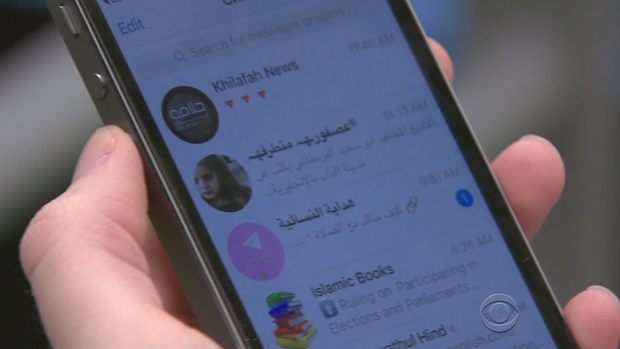Encrypted apps so popular for terrorists, ISIS may make its own
WASHINGTON, D.C. -- Terrorists these days turn to a popular app when they want to talk undetected: a messaging app called "Telegram" available for free on any smartphone.
"It's the go-to application for terrorist communication," said Elliot Zweig, deputy director at the Middle East Media Research Institute.
"Telegram has set it up that even they themselves don't retain the information. They cannot monitor the content."
There are dozens of other apps just like it, featuring powerful encryption law enforcement can't crack.
"That is a big problem. We have to grapple with it," said FBI Director James Comey.
He revealed Wednesday that one of the two men who tried to attack a Garland, Texas conference center in May communicated with an overseas terrorist 109 times that morning.
"To this day I can't tell you what he said with those terrorists," Comey said.
So Congress is considering legislation that would compel tech companies to unscramble and hand over suspicious encrypted messages.
But many of these companies operate outside the U.S. Telegram was founded by a Russian and is based in Germany. Experts warn that ISIS is testing out its own encrypted android app so it won't have to rely on outside companies at all.
Even U.S. tech companies have balked at the notion of new laws. They say encryption is there to protect all kinds of personal data and that if they give law enforcement a way in, eventually hackers will get in too.

